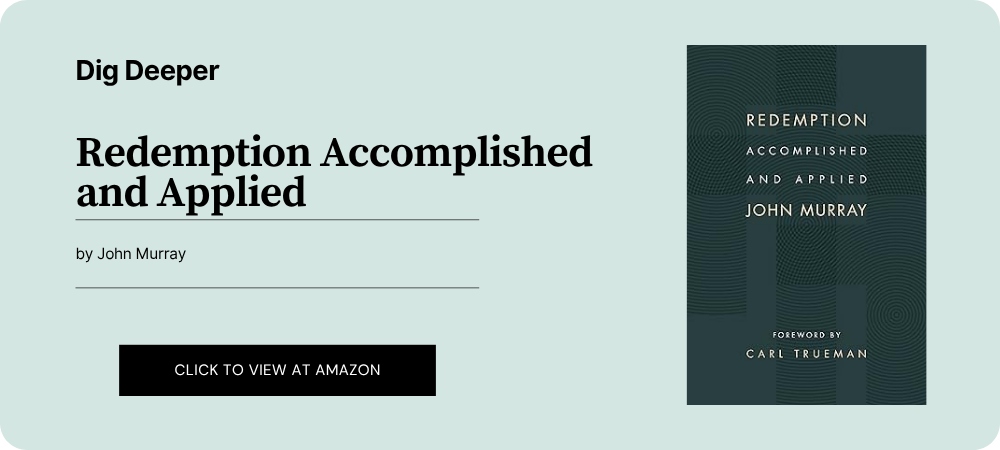We live in an anxious age. If you don’t believe me, check out this book, or this article, or this article that even discusses a rise in anxiety before the pandemic, or this research. And if you don’t trust any of those sources, here’s Fox News saying the same thing. Without a doubt, all of this anxiety affects the way we live. People seem more cautious than ever, more sensitive to risks, more concerned about consequences.
Of course, caution is not always a bad thing. People should not be needlessly reckless. Jesus warns against building houses and going to war without counting the cost (Luke 14:28-32). However, if you place those verses into their context, Jesus follows them by saying, “In the same way, therefore, every one of you who does not renounce all his possessions cannot be my disciple” (Luke 14:33). Jesus is not urging caution that leads to inaction. He’s not telling his audience to avoid risks because they are risky. Quite the opposite. He’s warning that discipleship is costly, that it requires sacrifice, giving up everything and assuming the risks that come with such a bold decision.
In an anxious age, how does one live with this kind of boldness?
Like so many facets of the Christian life, the answer to that question lies in the gospel itself. We see a glimpse of why this is true in Paul’s letter to the Roman church. In chapter 6, Paul recounts a central truth of the gospel: those who are crucified with Christ are also raised with him to a new life. Successful life and ministry today requires the mindset of a resurrected life. Christ calls us to live as those who have died and now cannot die.
Paul begins in chapter 6 by asking a question that takes us right to the purpose of redemption itself. Did Christ die on the cross so that we could get a free pass to do whatever we wanted? Was me being able to act however I wish, really worth the King of Glory bearing the weight of the world’s sins? Paul’s answer is as clear as his question: Absolutely not!
The gospel is not about us. It is, in many ways, for us, but it is not about us. Redemption was accomplished by Christ on the cross as part of God’s plan to receive ultimate glory from his creation. What man wrecked with sin, God redeems through power. The first Adam filled the world with rebels, but God through Christ, the second Adam, creates a new people. He fills the world with worshipers and with ministers.
The invitation given at the cross is not an invitation to selfishness. It is the invitation to be part of this new people God is creating, to become a citizen of another kingdom. It is not a call to fulfill your old desires. It is a call to have entirely new ones.
Paul unpacks his answer by explaining the nature of redemption applied to the human soul. His explanation comes in two parts: the truths of redemption applied and the terms of redemption applied.
The Truths of Redemption Applied
The first foundational truth is: this: Redemption is applied through union with Christ. There are two key phrases I want us to notice in these few verses. In verse 3, Paul claims that our baptism is actually a baptism into Christ. And in verse 5, he declares that we are united with Christ.
But what does that mean? Salvation does not just remove your guilt and shame. It does not just remove your eternal punishment. You are not just saved out of bad stuff; you are saved into something. Those of us who have crossed the line of faith are baptized into Christ, we are united to him. It is a mystical truth I could not explain if I tried, but that makes it no less true.
For those of us in Christ, what happens to Christ happens to us.
A Chinese pastor and author by the name of Watchman Nee speaks of an illustration he used while traveling through the Chinese interior. Nee writes,
I remember once I took up a small book and put a piece of paper into it, and I said to those very simple ones, ‘Now look carefully. I take a piece of paper. It has an identity of its own, quite separate from this book. Having no special purpose for it at the moment I put it into the book. Now I do something with the book. I post it to Shanghai. I do not post the paper, but the paper has been put into the book. Then where is the paper? Can the book go to Shanghai and the paper remain here? Can the paper have a separate destiny from the book? No! Where the book goes the paper goes. If I drop the book in the river the paper goes too, and if I quickly take it out again I recover the paper also. Whatever experience the book goes through the paper goes through with it, for it is in the book.’1
This, Nee responds, is what it means to be in Christ. His fate is your fate. What happens to Christ also happens to you. Redemption is applied through union with Christ.
A second truth flows from the first: Union in Christ means the call to be a Christian is the call to come and die. We too are crucified and the old man is gone (v 4a, 6-7). Passing through the waters of baptism is proclaiming that you join Christ in his crucifixion. Baptism represents burial.
For new life to happen, a death must first occur. Consider for a minute what that means. I know my old self, and he was not a good man. The old man was a liar. The old man was in bondage. The old self was a slave to his desires. In this passage, Paul unmasks sin for what it really is, a slave master that holds us in bondage.
The old man was buried with Christ. Christian in a mystical sense, being a Christian means that you have died. Your old self has been killed. It was on that cross with Christ. Robert Mounce says it this way, “Christ’s death for sin becomes our death to sin.”2 Does this mean that we are now sinless? It can’t mean that because of what Paul says a few verses later. It does mean our trajectory in life has changed. Union with Christ is the call to come and die.
Finally, if we died with Christ, we will also live with him. Paul writes, “…just as Christ was raised from the dead by the glory of the Father, so we too may walk in newness of life. For if we have been united with him in the likeness of his death, we will certainly also be in the likeness of his resurrection” (v. 4b-5). We too will be resurrected.
Christ’s resurrection was unique in all history. His was not the first resurrection recorded in the gospels. Others had been resurrected too. But Lazarus was resurrected only to die again. Christ did not and will not die again (v 9). He is the first fruits of a new resurrection, one that creates eternal life.
Christ was the first to experience this new resurrection, but he will not be the last. Remember, union with Christ means what happens to Christ happens to us. We have not yet experienced this resurrection, but we can be certain it awaits us. We can be sure, because Christ has experienced it and we share his fate.
Redemption is applied through union with Christ. Union in Christ is a call to come and die. If we died with Christ, we will also live with him.
The Terms of Redemption Applied
If being in Christ means our old self was crucified with him, and we live a new life, then these are terms of that new life:
Therefore do not let sin reign in your mortal body, so that you obey its desires. And do not offer any parts of it to sin as weapons for unrighteousness. But as those who are alive from the dead, offer yourselves to God, and all the parts of yourselves to God as weapons for righteousness. For sin will not rule over you, because you are not under the law but under grace (v. 12-14).
Since you have been united with Christ in his death and resurrection, do not be a weapon of the world but a weapon of God’s kingdom. Once the gospel is applied, we live as those who can never die.
That sounds crazy, doesn’t it? But it’s true. My body can fail me, but I am now alive in a way that cannot be taken from me. In Christ, I will live forever.
If this is true, we can walk in the kind of boldness possessed by those who live forever. We can radically obey God no matter the perceived consequences. We can cross oceans with the gospel. We can stare persecution in the face. We can give up everything we have and spend ourselves entirely on the Great Commission. Because when redemption is truly applied there is no room for fear. Christ’s fate is our fate. Christ’s future is our future. The Word tells us we are destined to rule alongside him in a new heavens and earth.
When we cross the line of faith, and we are obedient in this baptism that Paul describes, we are buried in Christ’s death and raised to walk in a new life. Baptism is a proclamation of war against the enemy. From death to life. Becoming a weapon of righteousness.
In an anxious age, the gospel provides the antidote to fear and worry. The gospel steels the soul, and strengthens the legs. Far from being those who shrink back at risk, we face the wind and press into the battle.
-
Watchman Nee, The Normal Christian Life. (Wheaton: Tyndale Momentum, 1987), 30. ↩
-
Robert H. Mounce, Romans, vol. 27 of The New American Commentary (Nashville: Broadman & Holman Publishers, 1995), 149. ↩







